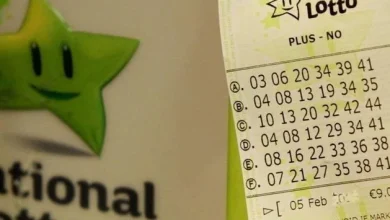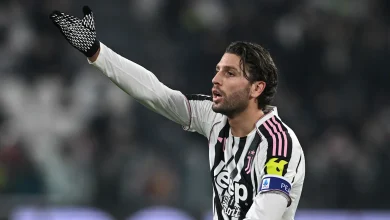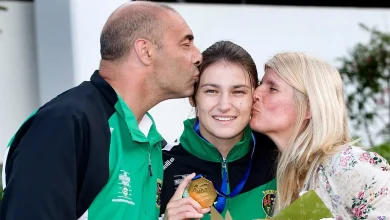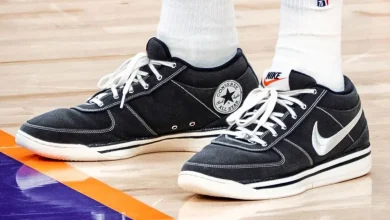Hard to quibble with All-Star allocations
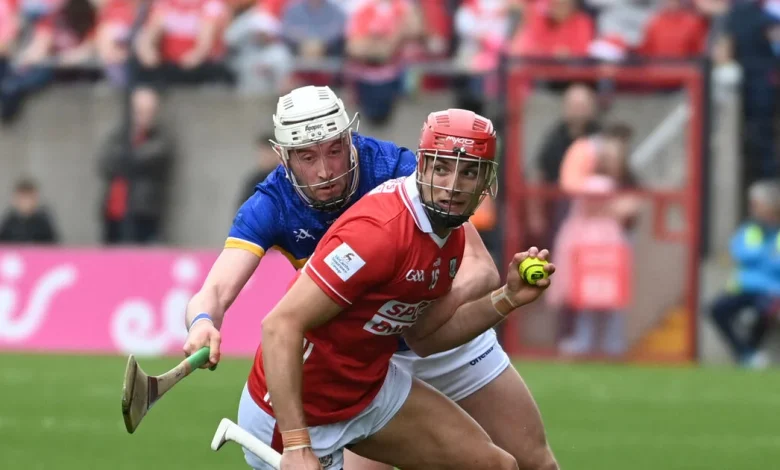
Awards based on performance can be a curious phenomenon.
Whereas only one team can win a match, when it comes to recognition like the All-Stars, you are essentially at the mercy of the strength of your opponents.
Consider this – in 1989, Nick Faldo, having won the Masters Tournament in April, was honoured at the end of the year with the BBC Sports Personality of The Year Award. A year later, he retained the Masters and won the Open Championship for the second time – but he didn’t even make the SPOTY top three, with Paul Gascoigne winning, followed by Stephen Hendry and Graham Gooch.
By a similar token, there is little in the way of controversy by saying that the Cork hurling team performed better across 2025 as a whole than in 2024, but they end the year with one All-Star fewer than 12 months ago.
Winning the Allianz Hurling League – the first triumph in 27 years, lest we forget – and then the Munster SHC were proof of Cork’s evolution and, of course, up until half-time in the All-Ireland final against Tipperary, it looked as if the triple crown would be completed.
Imagine telling somebody at 4.10pm on Sunday, July 20 that you had seen into the future and that the All-Star side contained seven Tipperary players and four from Cork. Not a soul would have believed you. By the same token, imagine coming out of TUS Gaelic Grounds on May 18, after seeing Cork lose to Limerick by 16 points, and putting forward the view that the Shannonsiders would be without a player on the team of the year for the first time since 2017.
Cork’s Ciarán Joyce celebrates after defeating Limerick in the Munster SHC final at TUS Gaelic Grounds in June. Picture: Eddie O’Hare
Of course, it hardly needs to be said that, while Cork lost the All-Ireland finals of 2024 and 2025, one was a one-point defeat after 90 minutes of hurling and the other involved a second-half collapse of unprecedented proportions.
One might quibble that the final carries such weight, but obviously it is the time when you want players performing to their best. Equally, it’s worth noting that the top scorer from this year’s decider, Tipp’s Darragh McCarthy with 1-13, did not make the team.
Is seven for Tipp generous compared to six for Clare last year? The case can be made that the Banner played Limerick twice in 2024 and didn’t win either time whereas Tipp’s only championship defeat came against Cork after playing the whole match with 14 players following McCarthy’s red card.
As Anthony Daly put it in the Irish Examiner, there is no player, from any county, that one can point to and say that they were done wrong by the selection committee. It’s a selection likely to generate little in the way of debate because it everybody who made it deserved to do so and anybody else fell short.
Tipperary goalkeeper Rhys Shelly and defender Robert Doyle celebrate after the All-Ireland final – both were included in the All-Star team. Picture: Inpho/Ryan Byrne
When it comes down it, as nice as they are, the All-Stars are a bauble on top of everything else. When, in 2010 Cork won ‘just’ four football awards after winning the All-Ireland, there was much misgiving on Leeside but an alternative way of looking at it was that it had been a victory of the collective rather than being overly reliant on one or two players carrying everybody else.
Similarly, you can bet that none of the four Cork hurlers honoured at Friday’s banquet – Seán O’Donoghue, Ciarán Joyce, Darragh Fitzgibbon or Brian Hayes – wouldn’t have preferred to be at home, without an All-Star but with an All-Ireland medal.
Here’s to next year and hopefully debating what a disgrace it is that Cork, as champions, have got so few.

